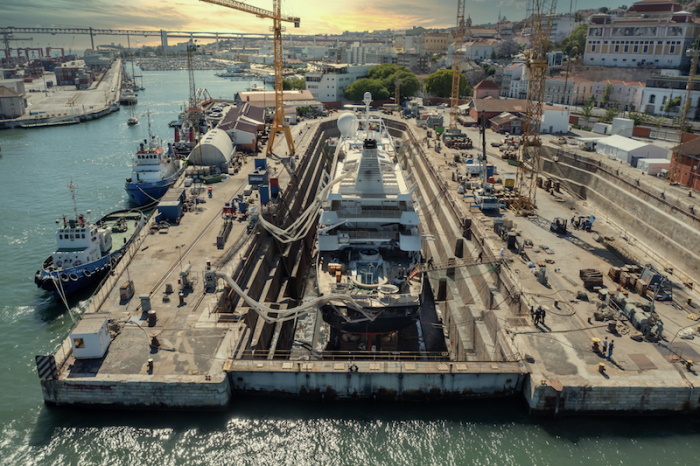The country’s shipbreaking industry is going to implement the minimum wages for its workers, set by the Ministry of Labour and Employment, from tomorrow (1 January 2025), the first day of 2025.
Mohammad Siddique, secretary of the Bangladesh Ship Breakers and Recyclers Association (BSBRA), made the announcement while speaking at an event titled “Sharing OSH Report on Shipbreaking Workers with Regional Stakeholders,” held at a hotel in Chattogram today (31 December).
The industry leaders have decided to implement the government-declared minimum wages for workers to ensure sustainability, as the sector faces a critical period due to national and international crises, including dollar shortages, rising scrap ship prices, declining local market demand, and significant investments in green transformation,” he added.
The minimum wage structure includes five worker categories, with Grade-1 workers, such as foremen, ship in-charges, and electrical foremen, receiving a monthly salary of Tk31,750 and a daily wage of Tk1,225.
Grade-2 workers, including supervisors, assistant foremen, winch drivers, and crane operators, are entitled to a minimum monthly salary of Tk24,250 and a daily wage of Tk935.
Grade-3 workers, such as cutter men, fitters, electricians, and mechanics, who face the highest risks during the dismantling of ships, will get a minimum daily wage of Tk820 and a monthly salary of Tk21,250.
Grade-4 workers, including cutter helpers, general workers, winch helpers, crane helpers, electrician helpers, and loader men, are entitled to a minimum monthly salary of Tk16,000 and a daily wage of Tk615.
Apprentice workers (Grade-5) will get a minimum monthly wage of Tk8,000.
When asked about the delay in implementing the minimum wage, Fazlul Kabir Mintu, coordinator of the Bangladesh Institute of Labour Studies (BILS), said, “Although the government issued the gazette notification in 2018 declaring minimum wages for shipbreaking workers, it could not be implemented due to the reluctance of industry owners and the inaction of the Department of Inspection for Factories and Establishments (DIFE).
“According to the law, DIFE can file cases against industry owners who fail to implement the minimum wages, but the authority has not taken a strong stand to enforce the law. On the other hand, there was no strong movement from the workers, which delayed the implementation,” he added.
Speaking to The Business Standard, Shipan Chowdhury, deputy inspector general of DIFE, said, “Businesses often keep two separate salary records: one that shows higher wages to labour inspectors, and the other that shows the actual wages paid to workers. This time DIFE will closely monitor the implementation of minimum wages and no chance will be given to deprive the workers.”
Workers’ death rate has decreased
At the event, the Bangladesh Institute of Labour Studies, in its yearly report, revealed that the annual death rate in Bangladesh’s shipbreaking industry has decreased over the last five years (2020-2024), averaging eight deaths per year, compared to an average of 17.8 deaths per year between 2015 and 2019.
Eighty nine workers lost their lives between 2015 and 2019, equating to an average of 17.8 deaths per year. In comparison, 40 fatalities were reported over the last five years, with an average annual death rate of eight.
These figures include 10 deaths in 2020, nine in 2021, and seven each year from 2022 to 2024.
Fazlul Kabir Mintu, coordinator for the institution presented the report.
During the first half of 2024, only one death was reported in the industry. However, a single accident at a green shipbreaking yard – SN Corporation – on 7 September resulted in six fatalities, bringing the total for the year to seven.
In the first six months of this year, 12 accidents caused one death and 15 injuries. Unfortunately, the latter half saw 16 accidents, leading to six deaths and 21 injuries.
The event, chaired by Tapan Datta, convener of the Shipbreaking Workers Trade Union Forum, brought together various stakeholders.
Source: The Business Standard





